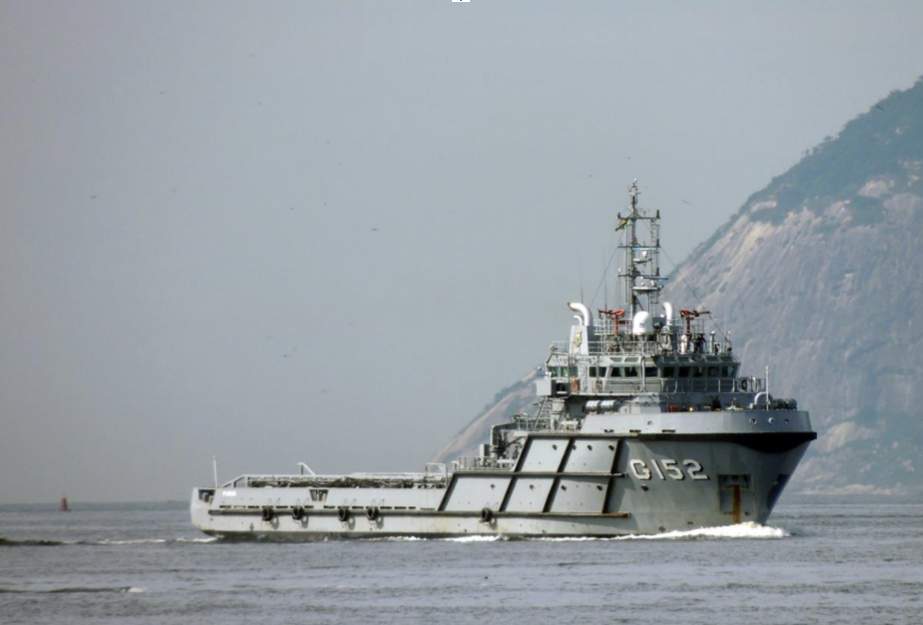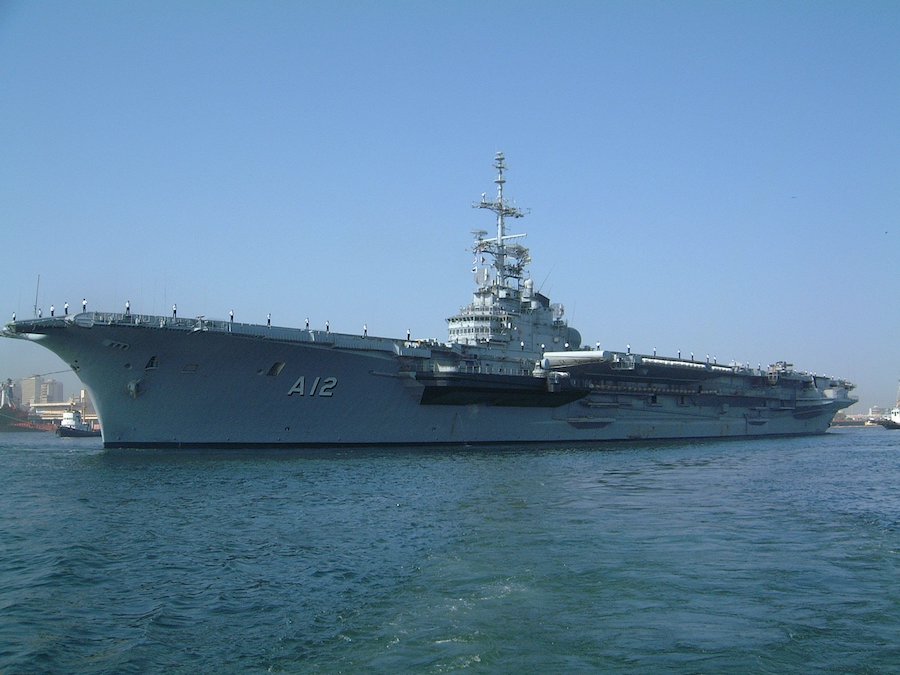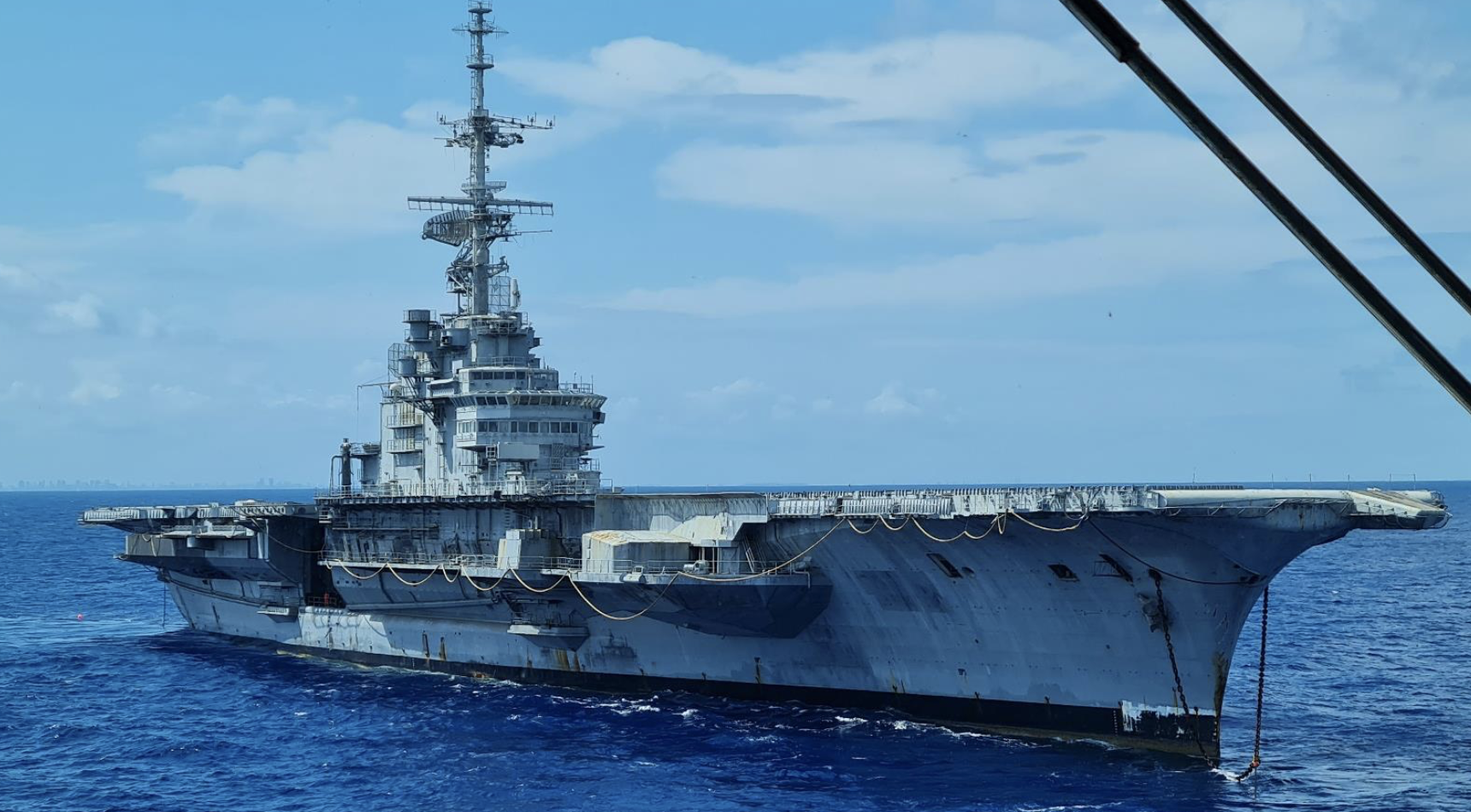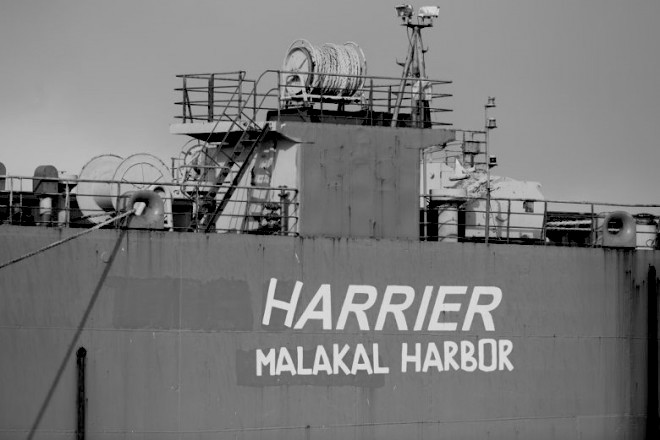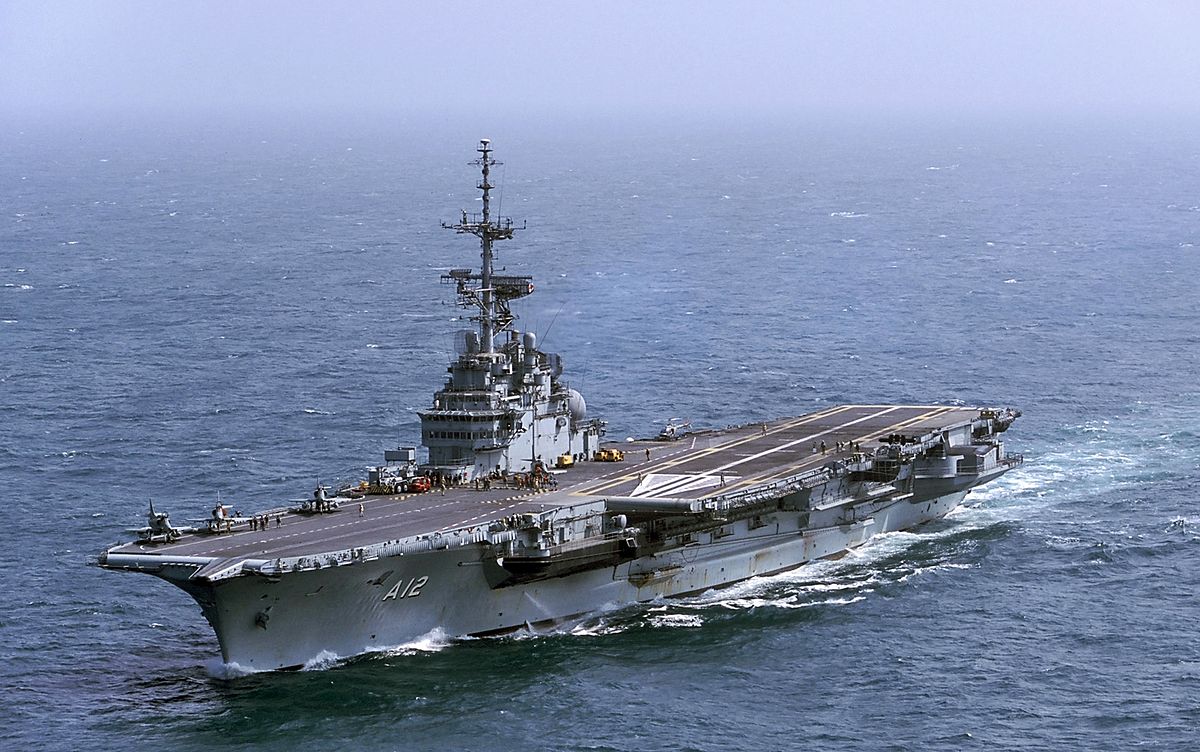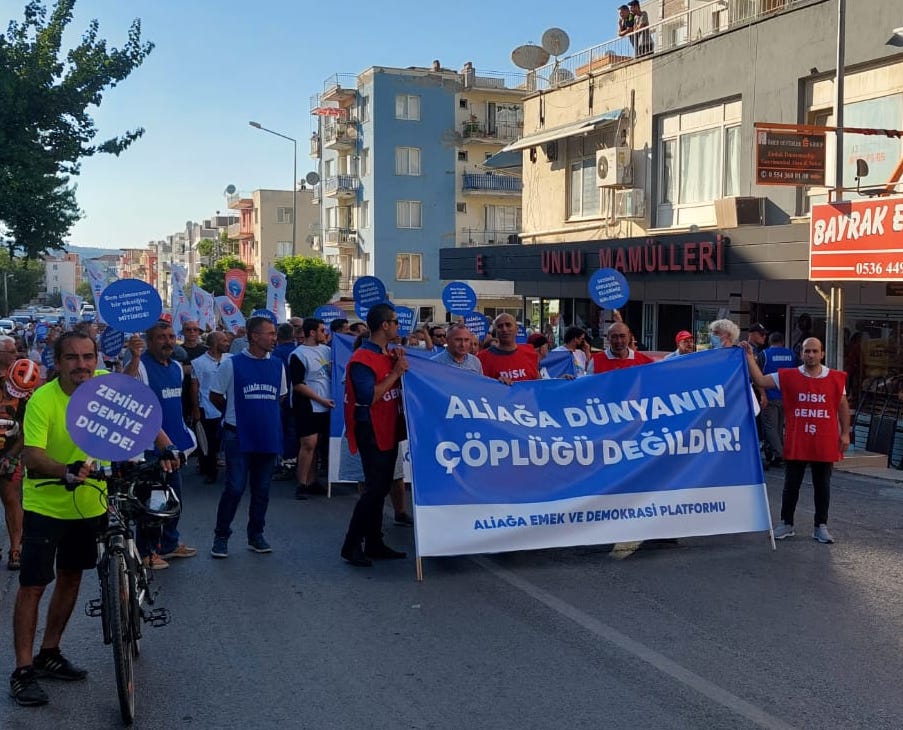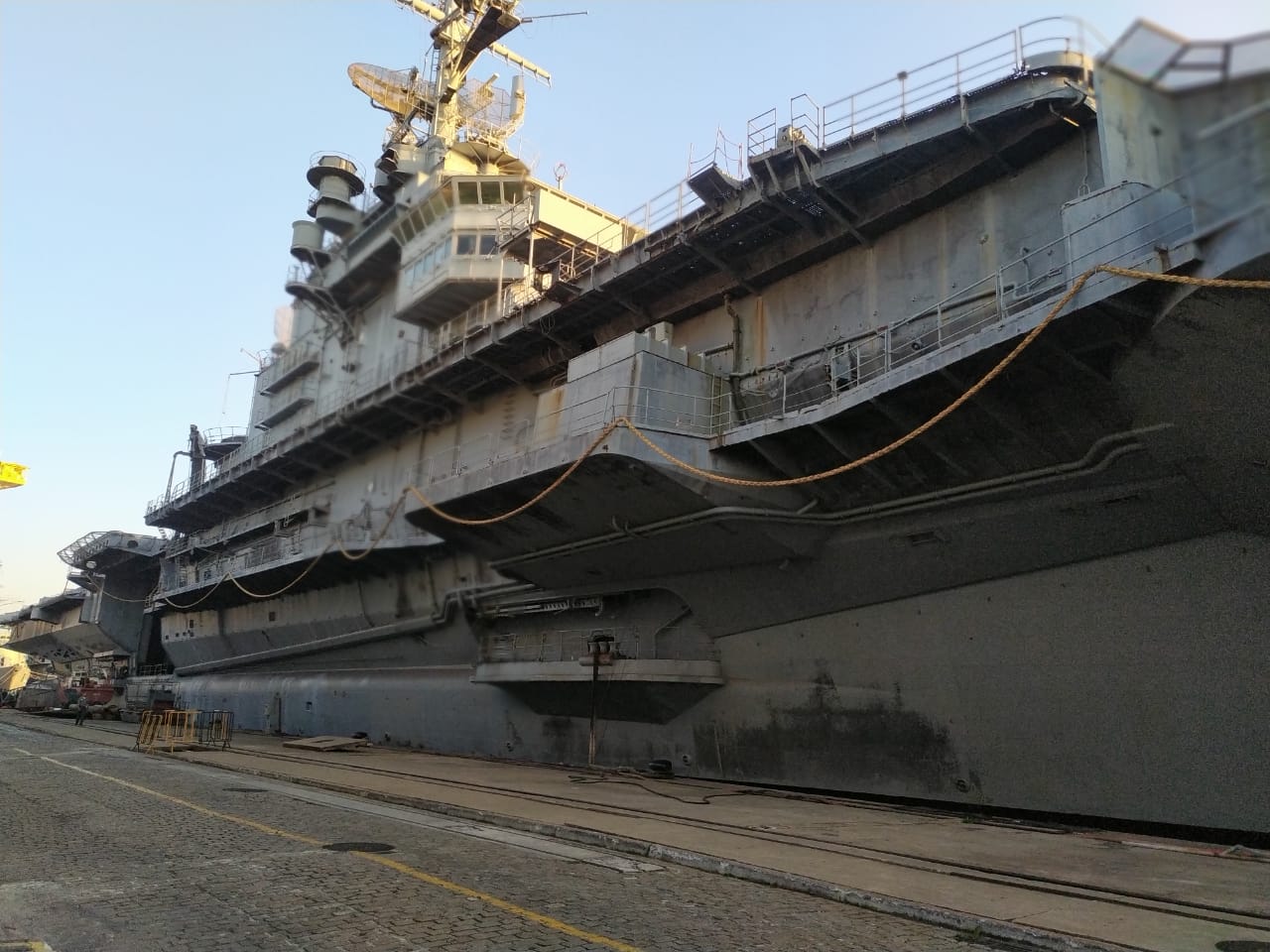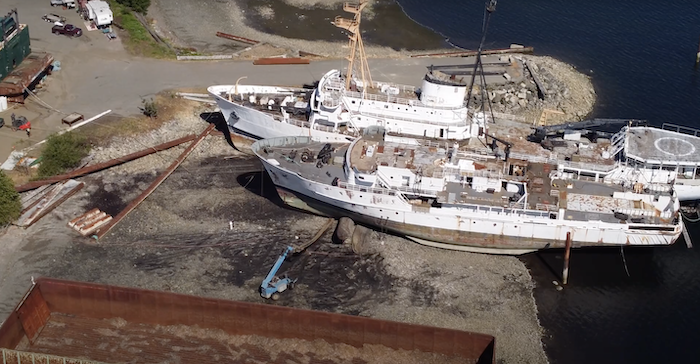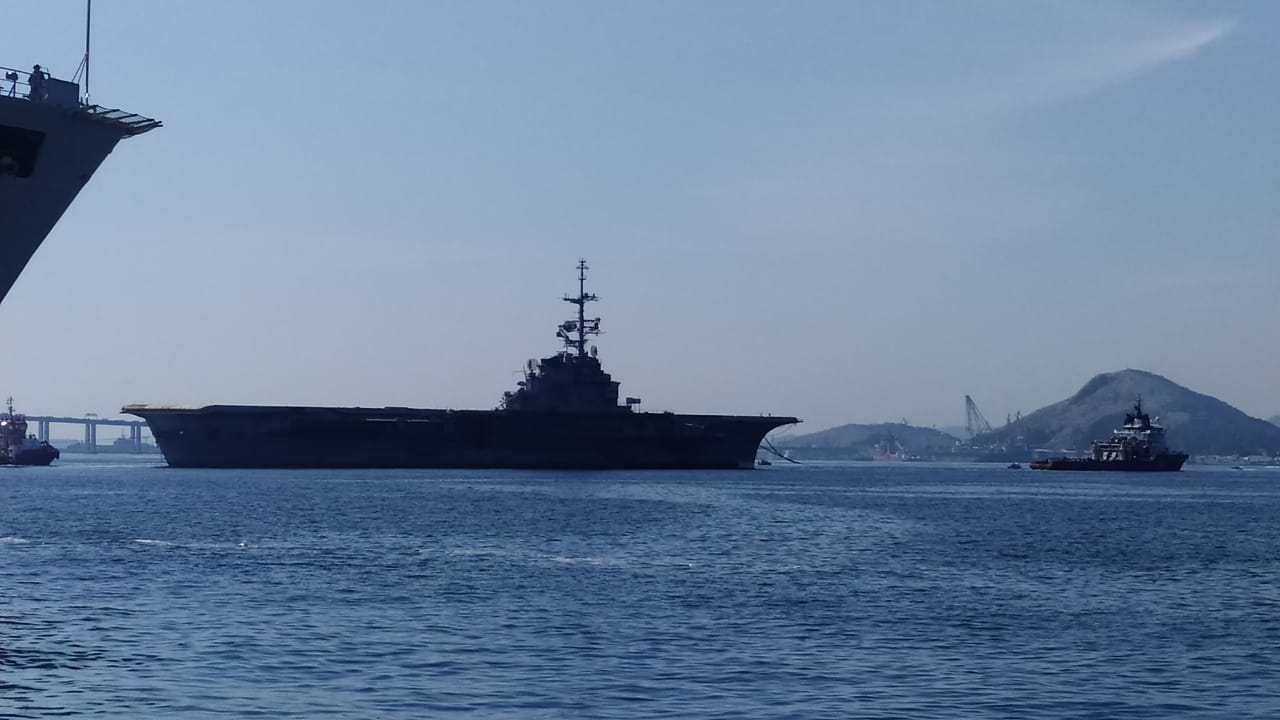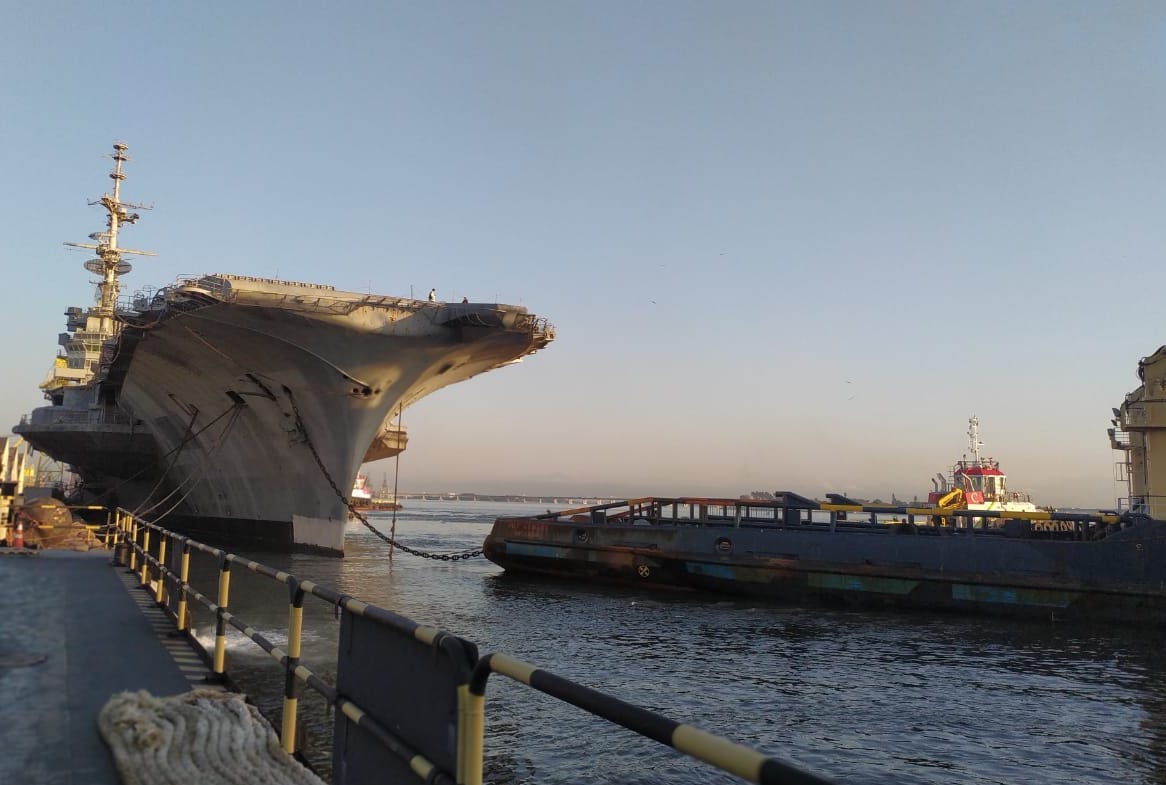NGOs urgently call on President Lula to prevent Navy from sinking toxic ship in the Atlantic
The former Brazilian Aircraft Carrier named SÃO PAULO, laden with asbestos, PCBs and other toxic waste materials, was seized on Friday and forced out to sea by the Brazilian Navy, claiming in an official notice yesterday that the move had to be done as the vessel was supposedly in imminent danger of running aground or sinking off the Brazilian coast.
Green groups that have been closely following the saga of the SÃO PAULO were shocked over this move and are not convinced by the Navy's sudden rationale that the ship posed an imminent danger. They note that while it has been known for weeks that there are minor breaches in the hull in need of repair, the Navy itself refused for over three months to allow the vessel to return to one of its facilities for repair or survey. The NGOs greatly fear that the Navy intends to never have the ship be returned to a port, never be re-examined for its quantity of hazardous wastes onboard, toxicity and suspected radioactivity, and will instead use an excuse of a small leak in the ship’s structure to force its sinking in the Atlantic Ocean.

BAN is citing the illegal seizure of a privately owned ship, as well as defiance of the Basel Convention. The latter requires the aircraft carrier to be safely returned to Brazil with Brazilian assistance, which the Navy has refused for three months. The London Protocol further forbids the intentional sinking of vessels unless all efforts have been first made to rid the ships of toxic waste residual materials such as heavy metals, asbestos and PCBs.
In a meeting held on 29 December, a Navy representative already alluded to a possible contingency action of sinking the ship. At that meeting, the issue of the small leak in the SÃO PAULO’s hull was discussed and it was concluded that the ship was not in imminent danger of sinking but should still be returned to a Brazilian port to undergo repairs prior to being put out to bid again for recycling. Following that meeting and a few weeks after the Lula Administration was installed, the coalition of NGOs wrote a letter to the new Minister of the Environment and Climate Change and to the director of IBAMA, the Brazilian Agency responsible for fulfilling Brazil's legal obligations under international law. The NGOs also issued a press release calling for the urgent safe docking of the vessel, fearing that it would indeed be abandoned by the Turkish owners. Within 24 hours of that press release, the Brazilian Navy, citing imminent hazard to the Brazilian population and environment inexplicably seized the vessel and seemingly forced a commercial tow ship to take it out to sea.
In addition to the economic loss of a vast quantity of secondary steel the SÃO PAULO contains, a forced sinking by the Brazilian government would result in hundreds of tonnes of asbestos, toxic and persistent PCBs, heavy metal-laden paints and possible radioactive materials to be released into the marine environment in violation of international law (London Protocol) [1].

NOTE
[1] Studies conducted at a US sinking site revealed toxic PCB leaching from a sunken aircraft carrier. According to the data, the leaching occurred at more than twice the US Navy and EPA’s pre-sinking modelled expectations. Leaching PCBs from the sunken vessel were found to be taken up by fish at the reef site, with an increase of concentrations in fish samples of 1,446% on average from pre-sinking to post- sinking.. As PCBs bioaccumulate in organisms and biomagnify in the food chain, they create health risks to organisms of all kinds. Due to PCB’s properties of persistence and toxicity, many scientists believe there is no safe level of exposure to PCBs. See BAN's report.
For more information:
Jim Puckett, Basel Action Network, e-mail: jpuckett@ban.org, Phone: +1 206-354-0391
Ingvild Jenssen, NGO Shipbreaking Platform, e-mail: ingvild@shipbreakingplatform.org, Phone: +32 (0)260.94.419

